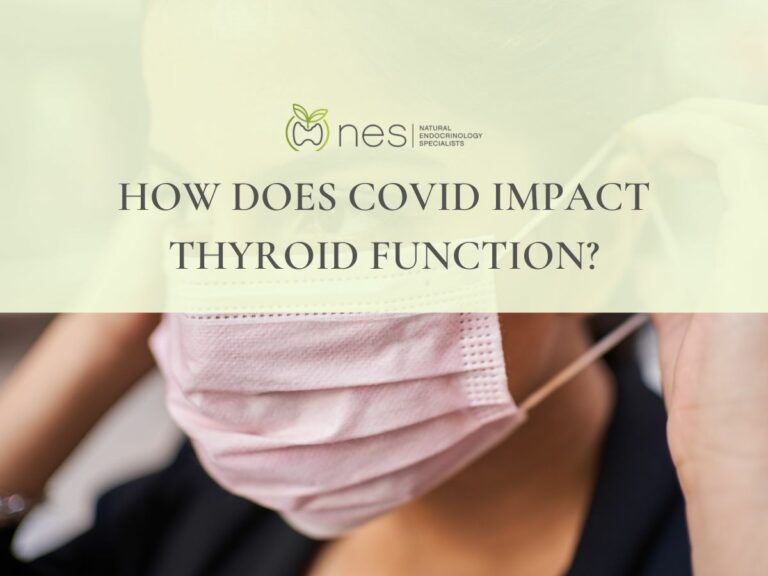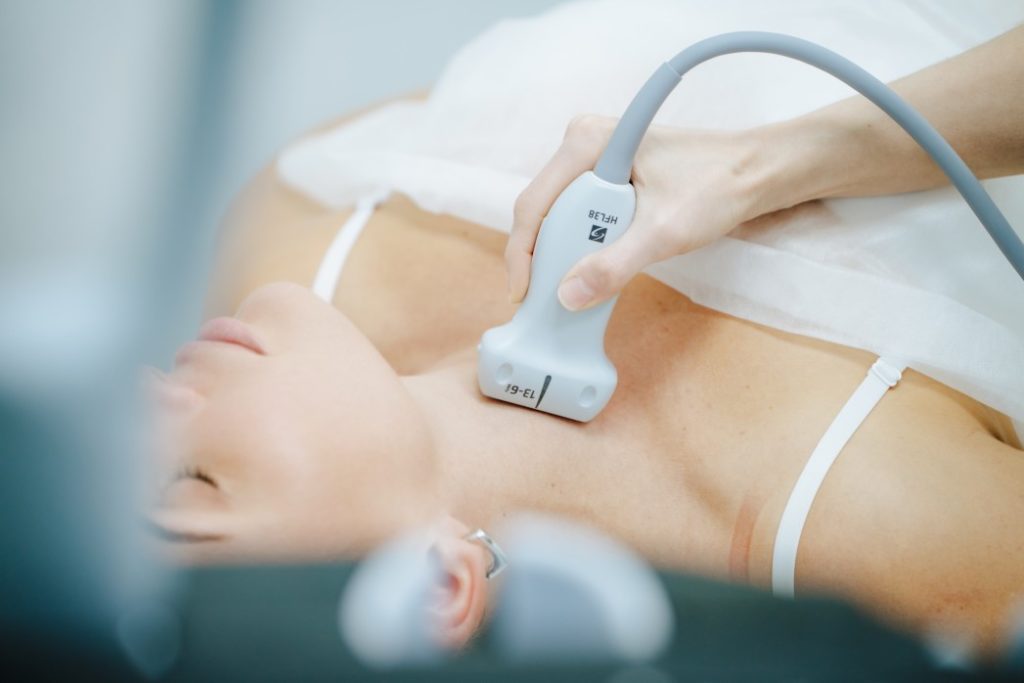Curious whether there is a relationship between thyroid function and covid 19 infection? Recent research suggests that the inflammation caused by the sars coronavirus may have an impact on the thyroid by inducing inflammation, resulting in hypo or hyperthyroidism or even autoimmune thyroiditis. As we've seen, coronavirus infection has a different effect on individuals with […]

Curious whether there is a relationship between thyroid function and covid 19 infection? Recent research suggests that the inflammation caused by the sars coronavirus may have an impact on the thyroid by inducing inflammation, resulting in hypo or hyperthyroidism or even autoimmune thyroiditis.
As we've seen, coronavirus infection has a different effect on individuals with symptoms ranging from quite mild to very severe.
We've seen that COVID-19 infection can cause what's known as a cytokine storm, which is a hypersensitive immune reaction causing widespread inflammation through the body.
This hypersensitive immune reaction can in turn cause the immune system to wreak havoc on the thyroid, causing antibodies to attack the thyroid gland.
Autoimmune thyroiditis occurs when your immune system attacks your thyroid cells. Your body begins to create antibodies that attack your thyroid gland. The types of autoimmune thyroid conditions include:
While there isn't one cause of autoimmune thyroid conditions are unknown, there are several causative factors including:
There have been several studies looking at why we're seeing that the thyroid specifically is being so affected in those who had a recent SARS-Cov-2 infection.
As we know, SARS-CoV-2 infects human tissues by entering cells through the ACE2 or angiotensin-converting enzyme 2 receptor.
While we may associate the ACE2 receptor with our lungs, it is actually expressed in several other organs including the adrenal glands, thyroid gland, pancreas, testes, and ovaries.
For this reason, these other organs may be a target of the ACE2 receptor as well, which could cause an aggravation of already existing endocrine abnormalities or cause new ones.
It should also be noted that because of this connection, individuals with endocrine diseases may have a more severe response to a covid-19 infection.
More specifically, the angiotensin-converting enzyme 2 receptors were shown to have a positive association with the thyroid hormones, thyroxine (T4), and triiodothyronine (T3).
A recent study, compared 93 patients who were admitted to the ICU for a COVID-19 infection with 101 patients also admitted to the ICU for reasons other than COVID-19.
The study looked at thyroid function tests in both groups and excluded patients who already had a pre-existing thyroid disease. The study suggested that there was no statistical significance that would suggest thyroid disease predisposed individuals to infection with COVID-19.
In this medical review, thyroid markers including TSH, Free T4, and Free T3 were measured. Interleukin-6, an inflammation marker, was also measured to assess the inflammatory response in patients.
After assessing 287 patients, the study concluded that there was a relationship between thyroid conditions, hyperthyroidism specifically, and COVID-19.
Interestingly, the inflammatory marker, cytokine IL6 was increased in patients whose TSH values were suppressed, indicating a hyperthyroid state.
While there have not been enough studies looking at the relationship between thyroid and COVID-19, the current research is showing that COVID-19 could be causing an overactive immune system that could be responsible for hyperthyroidism.
As we know, COVID-19 infection can have an effect on multiple organ systems. It is prudent to follow up with your physician so that they can order any indicated labs or imaging.

If you have any of the following symptoms, you may want to let your physician know so that they can assess your thyroid function.
Symptoms of hypothyroidism:
You can also request that your Physician assesses for autoimmune thyroid conditions, like Hashimoto's or Graves Disease.
They can do so by ordering a Thyroid Ultrasound and other blood markers, including thyroglobulin antibody, thyroid peroxidase antibody, and thyroid-stimulating immunoglobulin.
Based on your lab and imaging results, your Physician may need to initiate therapy. If you have hypothyroidism, your Physician will likely put you on thyroid replacement therapy.
If you have hyperthyroidism, your Physician will place you on anti-thyroid medication, like Methimazole. Therapy may differ depending on your results.
It should also be noted that with careful monitoring and therapy, it is possible to reverse some of these thyroid conditions.
While medication may be necessary at first, it doesn't mean that you will have to be on medication for the rest of your life.
It is important to find a Physician who will help you find ways to manage your thyroid properly and they can do so by assessing and investigating the root cause of your thyroid condition.

Acupuncture Session - $189.00
Acupuncture, Package of 4 - $636.00
Female Pellet Insertion Package - $518.00
Male Pellet Insertion Package - $744.00